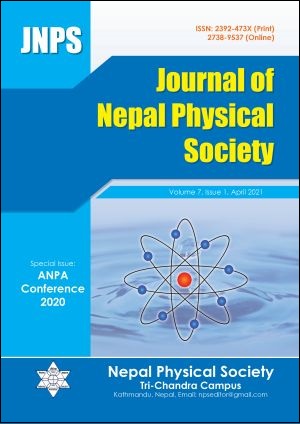A Review of Life Science Studies with Muons
DOI:
https://doi.org/10.3126/jnphyssoc.v7i1.36975Keywords:
Muon spin rotation, Biomolecules, Life ScienceAbstract
Positive muon is a spin half elementary particle lies in the second generation leptons in standard model of particles. It has been used as a sensitive magnetic (spin) probe for study of life and materials. Due to its special characteristics – 100% polarization and asymmetric decay to positron, it provides information about local electronic and spin states of material in which it stops. The asymmetry, relaxation of muon and its charge states in materials provide information about the interested phenomena. For life sciences study, muon can probe the dynamics of electron, proton, ions, H, O2, reaction dynamics, catalytic processes, concentration of molecules, magnetic behaviors, etc. in the biosamples. Here, the applications of positive muon to understand the life related phenomena are reviewed.
Downloads
Downloads
Published
How to Cite
Issue
Section
License
All right reserved. No part of this Journal may be reproduced in any form or by any electronic or mechanical means, including information storage and retrieval system, without permission in writing from the publisher, except by a reviewer who may quote brief passage in a review. The views and interpretation in this journal are those of author(s) and they are not attributable to the NPS.




